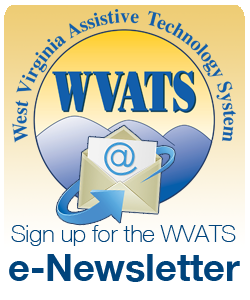Winter 2019
Download a PDF of this Newsletter.
Articles:
Assistive Technology in the Winter
Assistive technology (AT) can help with staying warm and safe this winter. Here are some tips and tools that might be useful.
Being able to keep a home at a comfortable temperature is important when it is freezing outside. A large print thermostat can help people with low vision. A talking thermostat may be more helpful for those with blindness or with mobility issues. Another option would be programmable thermostats that run on a schedule. Many programmable thermostats use smart technology that can be controlled by voice or smartphones.
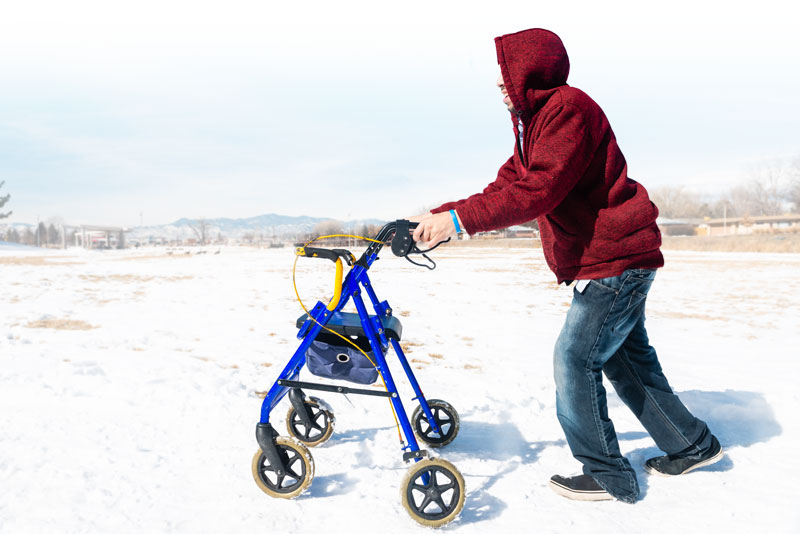
Staying safe when outside on ice and snow is important. Ice grips for shoes or canes can help keep a person from slipping and falling. Those using wheelchairs may want to consider ways that the chairs can be modified to handle the weather better. All-terrain tires can be helpful. An easy DIY solution to increase traction would be to wrap nylon ties evenly around each wheel and tire.
Shoveling snow can be difficult for many and can cause injuries. Using snow shovels that have ergonomic handles or that allow for pushing instead of lifting can be helpful when clearing walkways or driveways.
Ramps and stairs can become dangerous if they become icy. Be sure to use ice melt to keep it safe or use something like kitty litter that could provide some traction. Going up or down ramps and stairs can also be made safer by installing handrails or grab bars.
There are also digital tools available in some parts of the state to make life easier in the winter time while staying warm. Takeout apps like DoorDash and GrubHub may be available to deliver a wide variety of foods right to your door. Some areas may have grocery store delivery available through their apps or websites. These services could be very beneficial beyond winter if you have a disability that makes shopping difficult.
WVATS is available to discuss AT solutions that can help during the winter and throughout the year. For more information visit www.wvats.cedwvu.org. Contact WVATS at 800-841-8436 or email wvats@hsc.wvu.edu.
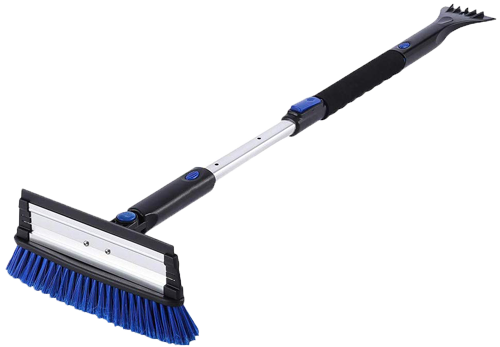
Powerful Tools
Telescoping ice scraper and snow brush
A telescoping ice scraper and snow brush can make clearing your vehicle easier if you have limited reach or mobility. Adjust the length for a comfortable reach to reduce arm strain.
Shoe treads for snow and ice
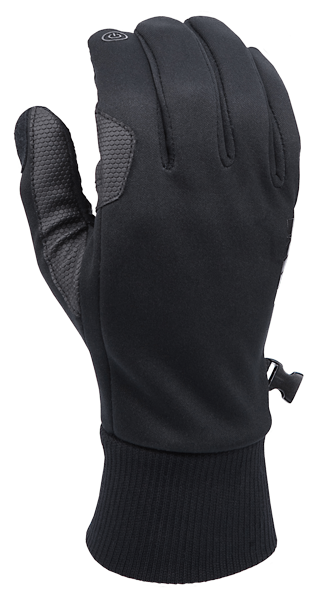
Shoe treads for snow and ice can be slipped over the soles of shoes to provide traction and grip when walking in ice and snow. These can fit over a variety of styles of shoes. These can be helpful to prevent falls.
Touchscreen Gloves
Winter gloves are necessary at times but can get in the way if you need to use a touchscreen device. Gloves that are designed for touchscreen use while providing warmth can be the answer. They can eliminate the need to remove gloves to access devices.
Wheel Blades
Wheel blades are small skis that attach to wheelchair casters or stroller wheels. They help improve mobility in snow and ice.
Electric heater car blanket
An electric heater car blanket can help people who are sensitive to the cold. Plug the blanket into a 12 Volt socket, found in nearly every car, and it can provide constant warmth and comfort.
Snow Sports
West Virginia is known for its winter sports. People with disabilities often think they cannot participate in many of these activities. Adaptive equipment can help people of all abilities enjoy playing in the snow.
Tools for guidance:
- Bamboo sticks allow for independence while providing guidance for someone who has the ability to stand on skis. The instructor holds one end while the student holds the other end.
- Tethers connect an instructor to a student. These can be used for a standing or seated skier. Tethers allow for the instructor to control turns and make a stop.
Two-track skis work for skiers that can stand on both feet. If there are balance issues, more support may be needed. Three or four-track outriggers may be needed to maintain balance. Outriggers are handheld and have short ski tips. These create three or four tracks in the snow behind the skier.
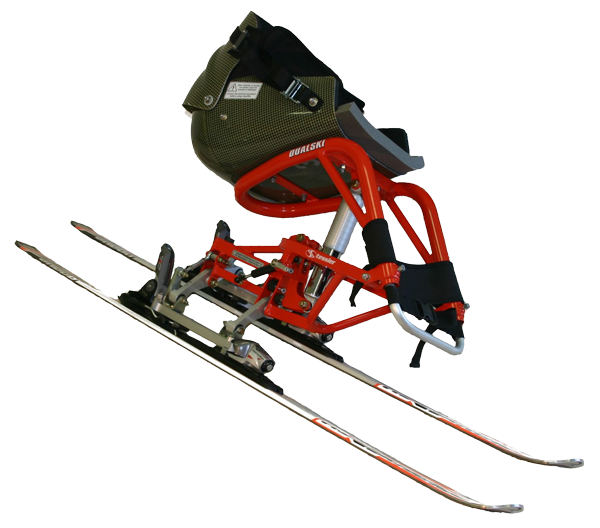
A seated device can be used by those unable to stand. There are two types:
- A mono-ski is a device with a seat attached to the top of one ski.
- The bi-ski is a seat attached on top of two skis.
Snowshoe and Canaan Valley are now offering these services in partnership with the Challenged Athletes of West Virginia (CAWV). CAWV has provided adaptive sports opportunities to adults and children with physical and cognitive disabilities since 1996. The group also provides education and training for professionals and volunteers.
Adaptive equipment and instruction provided by the CAWV include:
- Alpine skiing
- Snowboarding
- Hand cycling
- Adaptive bicycling
- Whitewater rafting
- Camping
For more information, visit the group’s Facebook page, Challenged Athletes of West Virginia.
Do I Need to Apply for Guardianship?
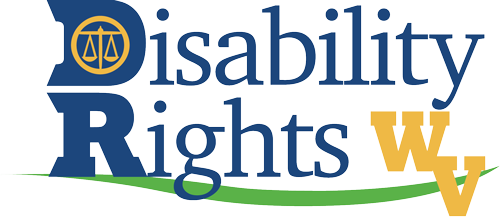
Guardianship does not have to be an all-or-nothing decision. If your family member needs help in some areas of life, there are a range of options that let you help. Disability Rights of WV (DRWV), the federally mandated protection and advocacy system for people with disabilities in West Virginia, would like you and your family to be aware of Support Decision Making (SDM).
- Supported decision-making allows individuals to make their own decisions and stay in charge of their lives, while receiving the help and assistance they need to do so.
- All people need and use support to make important life decisions. Even if a person with a disability needs extra help to make significant life decisions, their right to make their own choices should not be taken away.
- Using a supported decision-making agreement, a person with a disability chooses someone they trust to serve as their supporter.
- Decision-making is a learned skill. People with disabilities need opportunity, experience and support to learn to make well informed decisions.
- There are other legal ways to assist people with decision-making that do not restrict, limit or remove individual rights.
DRWV can speak with you and your service providers about SDM, including how to develop a SDM agreement.
If you would like additional information or have questions about the advocacy that DRWV provides, visit www.drofwv.org. DRWV can be contacted at 800-950-5250 or contact@drofwv.org. DRWV can also be found on Facebook, www.facebook.com/drofwv. "Like" us to receive updates.
Content provided by Disability Rights of WV.
Did You Know?
Many people experience the “winter blues” when the days become shorter and the sun does not appear as often. Spending time outdoors to soak up natural light is one of the best options to feel better. That may not be possible due to the cold or weather. Light therapy lamps or boxes provide bright lighting that may help.

